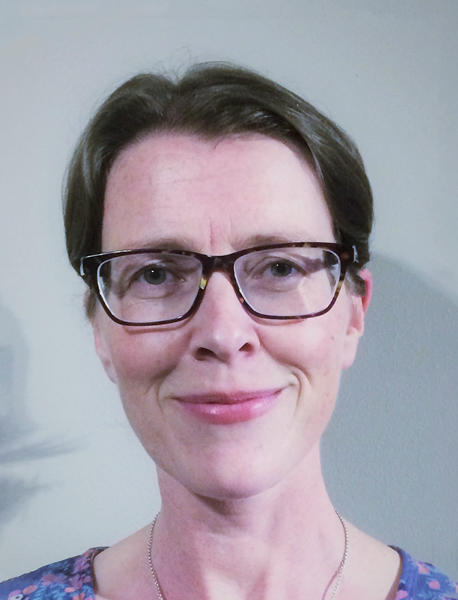Your Oxford Story: Kate Wild
Kate Wild
“Every word is interesting in a different way.”

My connection with Oxford University Press (OUP) began about 18 years ago, when I worked on the Historical Thesaurus of English (later published by OUP as the Historical Thesaurus of the Oxford English Dictionary) at Glasgow University, while doing my PhD there. The Historical Thesaurus project involved semantically categorizing thousands of Oxford English Dictionary (OED) senses, and the more I worked on it, the more determined I became to work on the source dictionary, the OED itself.
Jobs at the OED don’t come up very often, and when I left Glasgow I kept myself going with various freelance jobs: most interestingly with Lexical Computing, where I learnt a great deal about language corpora generally, and in particular the Sketch Engine (a corpus interface widely used by lexicographers). This work also gave me my first taste of life at OUP, as one of the freelance projects I worked on was the Oxford Children’s Corpus. I visited the Great Clarendon Street office and had a lovely welcome (and lunch: I decided that the canteen was another good reason to work at OUP).
I kept pestering the OED staff until they eventually relented and gave me a job, 11 years ago. During my time at OUP so far I’ve mainly worked as an OED editor, and I’ve had the pleasure of revising, drafting, or reviewing many fascinating OED entries: from personal favourites like chocolate (which involved writing to Cadbury’s to find out about the history of chocolate cream), to grammatically or semantically complex entries like lot (tracing the history from the original sense – as in ‘casting lots’ – to the semi-grammatical use – as in ‘a lot of people’ – was very enjoyable), to new entries like Xennial (I am one, it turns out).
I’ve also been given many opportunities to work on additional projects, including the Historical Thesaurus, the new OED website, Word of the Year, and corpus development. The latter is particularly exciting: lexicography and language research are driven by data, and we now have opportunities to access a much wider and more representative body of language data, and to exploit it in different ways. One of my regular tasks is to assess our monitor corpus for recently trending words, and this has fed into the Monitor Lexicography programme and also recent Word of the Year campaigns, especially the 2020 report on the language of Covid.
One of the best things about my job is the words: I can truly say I’m never bored, because every word is interesting in a different way. Another is the people: I am surrounded by incredibly kind, talented, and intelligent colleagues from whom I have learned about everything from Early Modern grammar to statistical significance to the Arabic alphabet to Filipino cuisine. And finally, the opportunities: it is an exciting time to be involved in language research, and I am looking forward to seeing how the lexical landscape evolves in the coming years.
_______________________________________________________________
When it comes to language, we’re all seasoned practitioners and participants in the evolving story of English. With this in mind, we opened up our approach to selecting the Oxford Word of the Year 2022 so everyone, everywhere could have their say – read about this year’s candidates here.
